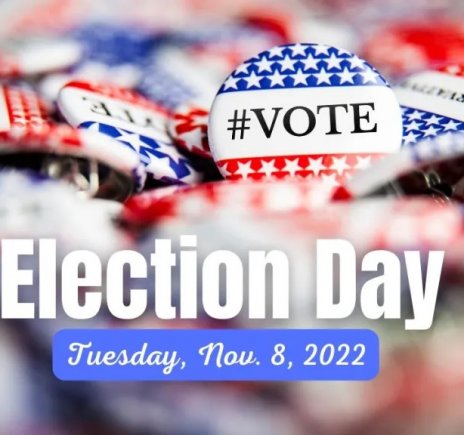October 27, 2022
Louisiana voters will go to the polls on Nov. 8 to fill a wide variety of offices. In addition to local elections, congressional midterms will also be on the ballot. At the top of the ballot will be the office of U.S. Senator. Louisiana is not considered a swing state in determining which party controls the Senate, but control of the Senate has a direct effect on the lives of the state’s residents.
And the Senate is where all the suspense is in this election cycle. While all 435 seats in the U.S. House of Representatives are on the ballot, most analysts believe that the House will likely flip to Republican control, especially with recent polls swinging in favor of the GOP. The Senate is more of a toss-up.
Historically, U.S. voters have preferred to divide power during the midterms. Since World War II, the party in the White House has lost seats in the House of Representatives, with only two exceptions: Bill Clinton in 1998 and George W, Bush in 2002.
Clinton was a popular president with a roaring economy. Bush was a wartime president overseeing the response to the 9/11 terrorist attacks. Those years were outliers. By contrast, President Joe Biden is struggling with inflation and a shaky economy.
In the vast majority of midterms for first-term presidents, the pattern has held. While there could be a historic surprise, Republicans will likely control the House after the election and be in a position to block any new legislation from Biden.
Even with the House in Republican hands and legislation stalled, the Senate could still be an important partner for Biden during the final two years of his term. The reason is that the Senate confirms federal judges. If anyone doubts the importance of the Senate, they need only look at the process that caused the Roe v. Wade decision to be overturned, empowering Republican-controlled state legislatures to outlaw abortion.
It was a Republican majority that allowed the Senate to block President Barack Obama’s Supreme Court nominee in his last year in office and then confirm three of President Donald Trump’s nominees, including one in the final days of his term. It was those new justices that created the majority for the Dobbs abortion decision.

Current pending controversies in the federal judiciary include cases dealing with interpretations of same-sex marriage rights, state legislative and judicial reapportionment, and whether the Voting Rights Act requires the Louisiana Legislature to create a second black-majority congressional district, all issues that directly affect Louisiana citizens
The Senate count is currently tied with each party holding 50 seats. The Democrats have control because the vice president breaks any ties. Thirty-five seats in the U.S. Senate will be on the ballot on Nov. 8, since the Constitution mandates that one-third of the Senate comes up for election in every two-year cycle.
However, due to partisanship and the power of incumbency, fewer than 10 seats per cycle have been in play in recent years. In the current cycle, six are currently competitive, defined as the candidates being within the statistical margin of error (3 or 4 points) in the polling averages. As of this writing, the six most competitive states are Arizona, Georgia, Nevada, Ohio, Pennsylvania, and Wisconsin. Within this list, Arizona, Georgia, and Nevada have Democratic incumbents. Wisconsin has a Republican incumbent. Ohio and Pennsylvania are open seats, being vacated by retiring Republican incumbents.
Recent polling shows that voter enthusiasm is high, with about 70% of both Democrats and Republicans telling pollsters that they are enthusiastic about voting. However, when the crosstabs of the polls are examined, there is a racial disparity. Voter enthusiasm among Black voters, however, is between 55% and 60% depending on the poll. This is a problem for the Democrats in the swing states, where between 20% and 25% of the Democratic voters are Black. Democrats have historically benefited from strong Black support.
At present, the Republicans are doing an effective job of motivating their base with an economic message promising to reduce inflation, fight crime and limit immigration. For the Democrats to be competitive, they will need to find a way to motivate Black voters to reduce the enthusiasm gap. A double-digit racial turnout disparity would likely flip most of the close races to the Republicans.
In the final few days of the campaign, expect both parties to make their closing arguments directly to their bases to increase turnout. White turnout on both sides is probably already maxed out. The big question is: Can Democrats give Black voters a compelling enough closing message to turn them out at a rate close to or equal to white voters? That will determine control of the Senate and more.







